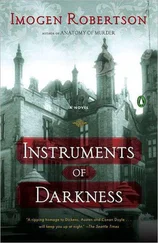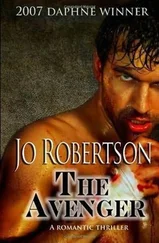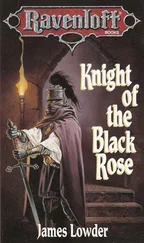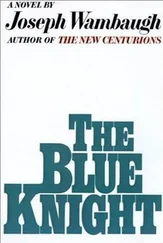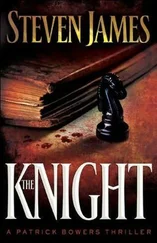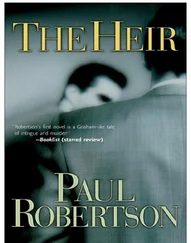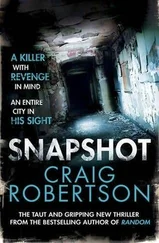Davie Fyfe opened his mouth to explain the yaws, but Underwood had hit on a favourite theme, and rolled on unstoppably.
‘I take a great pride,’ he said, ‘in knowing my Negroes. I’m a fair man, and I don’t believe in mistreating them. Punishment, yes, but that’s not mistreating them if they deserve it, that’s treating them same as you’d treat anything in your charge, black, white or beast of the field. There’s men I know,’ he went on, shaking his head and in the process showering the table with sweat, ‘as have no respect for your African at all. They forget that he’s a human being. A bad planter don’t break them in as he should, he don’t season them over a twelvemonth, he puts them out in the field far too early, and then he wonders why they die on him and he’s wasted his money. That’s almost like murder, in my book. You can pay a terrible price for a fine Coromantee, a terrible price, but if you don’t look after him, well, you may as well have put your money on a horse with three legs. No, a good planter, such as I believe I am, knows his Negroes, and if you, Mr Wedderburn, and your young brother here, are to flourish in Jamaica, I’d advise you to know your Negroes too. Come along to the scramble with me tomorrow, and you can make a start. Truth of the matter is, you can’t prosper here without keeping slaves, and if you want to keep them you have to understand them, the different types of them. Do you follow me?’
‘You must tell us more, sir,’ James said, signalling for more rum and winking at John. ‘How many types of them are there?’
‘Oh, limitless, limitless,’ said Underwood. ‘Guinea, you see, where they come from, is bigger than, oh, England and Scotland and France put together. Far bigger. And what is Guinea? Is it a great kingdom, like France, like England? A fine country like your Scotland, sirs? No, it’s a jumble of little kingdoms and tribes and desert and swamp and forest, all mixed up together. That’s where your neger comes from, and there’s many of them very glad to get out of it, though they don’t think so at the time they’re taken, which is understandable. But if they stayed, chances are they’d be eaten by savage lions, or by other negers, or they’d be killed by them, or they’d starve, or die of thirst – there’s a hundred ways of dying in Guinea, Mr Wedderburn, and none of them’s nice. Or they’d be made slaves of by the Moors, which you may be sure is a sight worse than being a slave here in the Indies. A great deal worse. Am I right, Mr Fyfe?’
Mr Fyfe opined that he might well be, but as he had never been to Guinea he could not tell.
‘Nor I,’ said Underwood, ‘but there’s plenty as has. All the captains of the slave ships, they have, and I talk to them as part of my policy of knowing my Negroes. Anyway, as to types , Mr Wedderburn, there’s your creoles of course, to begin with – that’s them that’s born here in the Indies and has forgotten whatever African tribe they once was. Then, of the Africans, the full-blooded freshly imported slaves, well, I’d say there’s four types, speaking in a general kind of way. First, there’s your Eboes. They come mostly from Benin, that’s the underbelly part of Guinea. They’re the least useful, in my opinion, though they fetch them over in droves. A very timid type, and rather prone to killing themselves of despair, I’m sorry to say. You’ll see a lot of them in the scramble tomorrow, I don’t doubt. Then there’s your Pawpaws and your Nagoes, from a bit further north. Now these are very excellent Negroes if they’ll live, very docile and well-disposed creatures, and never the least trouble, but they die off easy from a lack of character – am I going too fast, sir?’ He asked this of James, who had produced a pocket book and stub of blacklead pencil and was taking rapid notes. James waved him on. ‘The third type is your Mandingo. He’s a clever fellow, too clever in fact, he can learn to read and write and do his sums very quick, but he’s lazy, and much given to theft. And then,’ said the fat planter grandly, as if announcing a prize bull, ‘there’s your Coromantee, from the Gold Coast. He’s the cream of Africans, stands head and shoulders above the rest. Firm of body, firm of mind, brave, strong, extraordinary powerful worker in the field – but proud too, stubborn, and ferocious when roused. You have to watch Coromantees like a hawk, gentlemen, but you’ll get more work out of one of them in a week than you’ll get out of six Eboes. Am I not correct, Mr Fyfe?’ he finished, by way of variation.
‘Indeed you are, sir,’ said Davie Fyfe, ‘and to what you’ve said I’ll add that, being of a strong constitution, they don’t get so sick as the others.’
‘We should have some Coromantees then,’ said James to his brother, ‘when we are planters. They sound like the negers for us.’
‘And how,’ said John, ‘do you intend that we pay for them?’
James did not answer that question then. Nor did he address it the following day, when they went to the scramble with Underwood and saw him in action picking up bargains. A large wooden pen had been filled with a couple of hundred Africans. Once a set price had been agreed, a drum sounded, the gates were opened and in rushed the planters or their overseers, each carrying a coil of rope identified by a couple of handkerchiefs tied to it.
Underwood, sweat lashing off him and his wig toppling on his head like a skein of yellow knitting, moved with amazing speed, grabbing at the arms of terrified Africans, quickly inserting a thumb into some of their mouths to check the state of their teeth, slipping his hand between their buttocks (it was known for ships’ surgeons to stop slaves’ anuses with oakum, to disguise the fact that they had the flux), pummelling and punching at their legs to test them for strength, and all the while playing out the rope, the loose end of which James had offered to hold.
‘Bring it round, sir, enclose them, that one, that one there, sir, the big bullish one,’ Underwood roared, making himself heard above a similar racket issuing from the mouth of every other white man in the scrum. James darted after Underwood like an elf behind an ogre. Every few seconds he turned back to John, who was following at a distance and doing his best to avoid bodily contact with anyone. There was an appalled look in James’s eyes, but he was also laughing uproariously. He began to wave the rope-end in black faces, and when they cowered or shied away his laugh got louder. It was as if, having decided to do something distasteful, he discovered that he quite enjoyed it.
In less than a quarter of an hour, Underwood had got himself seven new slaves, corralled by the rope like unwilling participants in some grotesque parlour game, and was settling up with the slave-ship captains.
That evening, long after Underwood had loaded his new purchases on board ship for Westmoreland, the brothers discussed the scramble over supper in their lodgings.
‘It was disgusting,’ John said.
‘You mean it offended you?’ James asked. ‘Your moral sensibilities?’
‘No, I mean it disgusted me. The noise and sweat and brutishness of it.’
‘It was impressive, too, though,’ James said. ‘Not Underwood – he’s a buffoon. But the fact that a man like that has such power over others.’
‘He certainly had no compunction about checking his wares.’ John had an image of the fat planter’s fingers running over black skin.
‘You’ll have to do the same,’ James said, ‘so you’d better get used to it. And you will. It doesn’t have to be so uncivilised.’ A sly look came over his face and he leaned forward. ‘Listen, John, here’s what I propose. We’ll be planters, and we’ll be better than the likes of Underwood, far better. But first we’ll be surgeons. I’ve been thinking about it all day. Davie’ll teach us, he’ll take us on as apprentices when he gets the business, he’ll not have to pay us much, not till we learn a little anyway. Well, you needn’t look so gloomy, you must have seen a fair display of wounds, quite a pack of sick men, in the last year or two.’
Читать дальше



